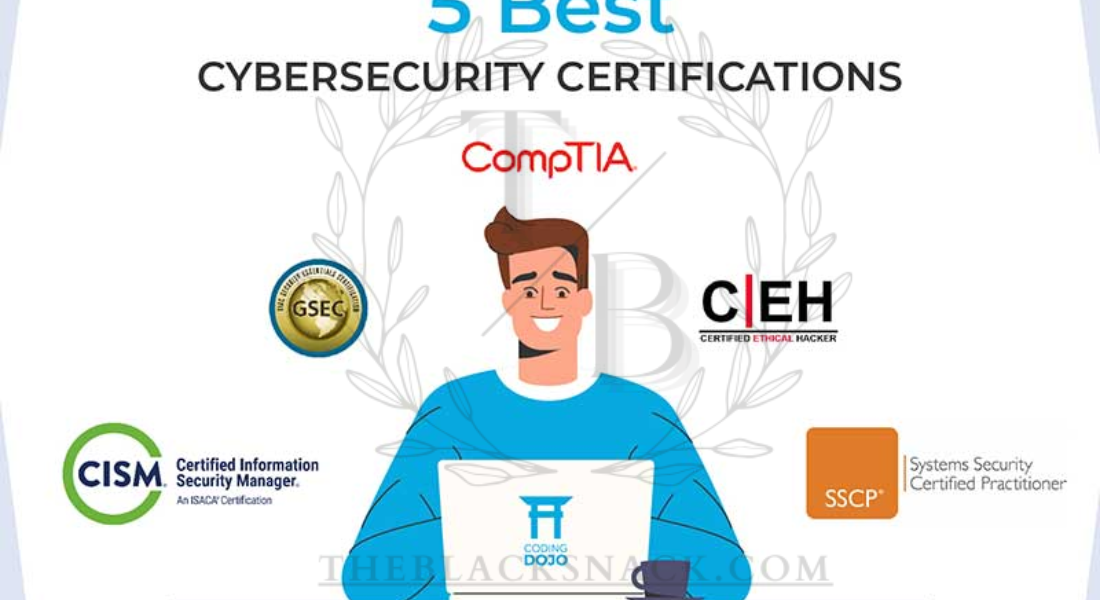In today’s digital age, protecting sensitive data is crucial. With increasing cyber threats, cybersecurity professionals are in high demand. Enrolling in cybersecurity certification courses is one of the most effective ways to build expertise and prove your skills in this field. These courses not only boost your technical knowledge but also help you stay ahead of evolving cyber risks. This comprehensive guide will help you explore various courses, their benefits, and how they can enhance your career. By investing in the right cybersecurity certification, you set the stage for long-term success and industry recognition.
1. Why Cybersecurity Certification Courses Matter
Cybersecurity certification courses validate your technical knowledge and skills. They give employers confidence in your ability to protect digital assets, ensuring you have a competitive edge in a crowded job market. Certifications also keep you updated on the latest threats and defensive techniques, enabling you to respond proactively to new challenges. Certified professionals often enjoy higher salaries, increased job security, and better opportunities for advancement, which are crucial in a fast-growing and competitive field.
Having certifications showcases a dedication to your profession and demonstrates your commitment to ongoing education. In a field that evolves quickly due to emerging technologies and new attack vectors, staying current is vital. Employers value professionals who take the initiative to continually improve and expand their knowledge base, making cybersecurity certification courses essential for career growth and personal development.
2. Top Cybersecurity Certification Courses to Consider
Choosing the right course can make a significant difference in your career. Below are some of the most recognized and impactful cybersecurity certifications.
Certified Information Systems Security Professional (CISSP)
Overview: CISSP, offered by (ISC)², is ideal for experienced security practitioners, managers, and executives. It covers eight domains, including security and risk management, security architecture, and software development security.
Benefits:
- Recognized globally as a gold standard in cybersecurity.
- Demonstrates deep knowledge across a broad range of cybersecurity principles.
- Suitable for senior-level positions, enhancing career prospects for managerial and strategic roles.
Requirements: Minimum of five years of full-time work experience in two or more CISSP domains. The CISSP is known for its challenging exam, which tests the ability to apply theoretical knowledge to practical scenarios.
Certified Ethical Hacker (CEH)
Overview: The CEH certification, provided by the EC-Council, trains you to think like a hacker. You learn to test systems for vulnerabilities and secure them from potential threats.
Benefits:
- Teaches hands-on hacking and penetration testing skills.
- Prepares you for both offensive and defensive roles in cybersecurity.
- Builds practical knowledge through real-world challenges, enabling you to better understand how cybercriminals operate.
Requirements: A strong understanding of basic cybersecurity concepts is needed. Completion of an EC-Council-approved training program is recommended, though not mandatory.
CompTIA Security+
Overview: This entry-level certification by CompTIA covers foundational knowledge in risk management, network security, and compliance. It’s perfect for those starting their cybersecurity journey.
Benefits:
- Globally recognized entry-level certification.
- Provides essential knowledge required for a variety of security roles.
- No formal prerequisites, making it accessible to beginners and IT professionals transitioning to cybersecurity.
Requirements: While there are no strict prerequisites, it’s recommended to have two years of IT administration experience with a focus on security to better grasp the certification material.
Certified Information Security Manager (CISM)
Overview: Offered by ISACA, CISM is geared towards those focusing on management. This certification is ideal for individuals who design and manage an enterprise’s information security program.
Benefits:
- Focuses on governance, risk management, and compliance.
- Enhances your capability to manage security teams effectively, making you an asset for leadership positions.
- Valuable for senior management roles where strategic decision-making is involved.
Requirements: Minimum of five years of experience in information security management. The CISM demonstrates a blend of technical and managerial expertise, crucial for higher-level roles.
3. Emerging Cybersecurity Certification Courses
As cyber threats evolve, so do the courses available. Here are some newer certifications that are gaining popularity:
a) Certified Cloud Security Professional (CCSP)
With cloud computing becoming a cornerstone of business operations, CCSP, provided by (ISC)², is essential for professionals securing cloud-based environments. It covers topics like cloud architecture and security operations.
Benefits:
- Keeps you at the forefront of cloud security, a critical area as organizations increasingly move to cloud platforms.
- Enhances your ability to protect data in cloud environments and respond to unique challenges posed by distributed systems.
- Recognized across various industries leveraging cloud technologies, making it versatile and valuable.
b) GIAC Security Essentials (GSEC)
Offered by the Global Information Assurance Certification (GIAC), GSEC provides a comprehensive foundation in cybersecurity. It’s perfect for professionals who need a broad understanding of the field.
Benefits:
- Demonstrates hands-on skills across a wide range of security topics.
- Suitable for individuals transitioning into cybersecurity from other IT roles, helping them bridge the knowledge gap.
- Does not require any formal prerequisites, making it an attractive option for both newcomers and seasoned professionals.

4. How to Choose the Right Cybersecurity Certification Course
Selecting the right course depends on your current expertise and career goals. Here are some factors to consider:
Your Experience Level:
Beginners may start with foundational certifications like CompTIA Security+, while experienced professionals might opt for CISSP or CISM to validate advanced knowledge.
Career Path:
If you are interested in penetration testing and ethical hacking, certifications such as CEH or Offensive Security Certified Professional (OSCP) are more relevant. For those looking into governance, risk management, and leadership roles, CISM or CISSP would be a better fit.
Industry Demand:
Research the certifications most valued in your target industry. Certifications like CISSP and CEH are commonly requested by top employers due to their comprehensive and recognized curriculums.
Mode of Study:
Cybersecurity certification courses can be taken online, in-person, or through intensive boot camps. Choose a format that fits your schedule and learning style. Online courses offer flexibility, while in-person classes may provide more direct access to instructors and peers for networking opportunities.
5. The Benefits of Cybersecurity Certification Courses
Cybersecurity certifications provide numerous benefits:
- Improved Job Prospects: Many employers prioritize candidates with certifications over those without. Certifications serve as a reliable way to gauge an applicant’s skills and readiness to handle security challenges.
- Higher Salary Potential: Certified professionals typically earn higher salaries compared to their non-certified peers. According to industry surveys, the pay gap between certified and non-certified employees can be substantial.
- Enhanced Credibility: Certifications demonstrate a commitment to staying updated with industry practices and standards. They prove that you have undergone rigorous training and testing to meet specific security benchmarks.
- Continuous Learning: Certification renewals and continuing education requirements help you stay current with emerging threats and technology. This lifelong learning mindset is invaluable in a field where cyber risks change rapidly.
6. Tips for Success in Cybersecurity Certification Courses
a) Plan Your Study Schedule: Dedicate time each week to studying course materials and practicing hands-on skills. Consistency is key to mastering complex topics and passing exams on the first try.
b) Engage in Practice Exams: Taking practice tests helps you identify knowledge gaps and build confidence for the actual exam. Simulating the test environment can reduce stress and improve exam performance.
c) Network with Peers: Join cybersecurity forums, attend webinars, and connect with fellow learners to exchange insights and resources. Peer discussions often provide practical insights and real-world applications that textbooks may not cover.
d) Invest in Quality Training: Choose courses with comprehensive material and practical labs for a well-rounded experience. Labs help you translate theoretical knowledge into actionable skills, which are crucial for roles that require technical expertise.
Conclusion
Cybersecurity certification courses are powerful tools for career growth and skill development. They not only validate your abilities but also position you as a qualified expert in an industry that increasingly relies on skilled professionals to combat complex cyber threats. Whether you’re just starting or looking to elevate your career, investing in a reputable certification can open doors to new opportunities and secure your professional future.



